5 reasons you should always wash sportswear separately
Here’s why you should always keep your sportswear separate in the wash
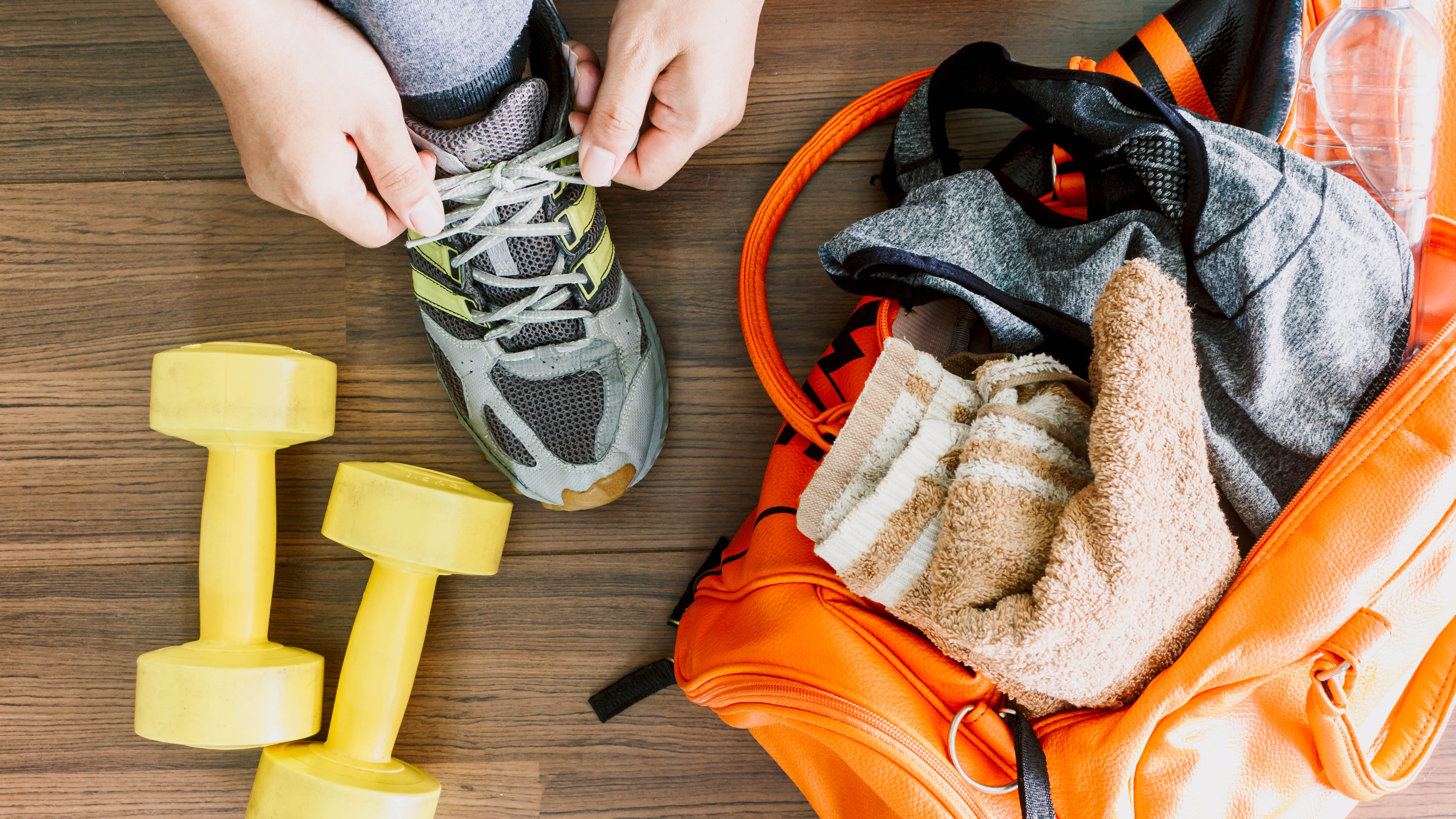
Coming home from a hard session at the gym is a rewarding feeling. Endorphins are racing and you’ve earned some well-deserved R&R. But something we all must face on reaching home is the dreaded smelly gym gear. Naturally, as tired as we are, it’s all too tempting to throw it into the hamper with the rest of the laundry and be done with it. But, this is a habit you should avoid at all costs, even if you have one of the best washing machines.
After working out for any number of hours, sweaty sportswear is a natural side-effect and something that needs dealing with quickly. But while it might be convenient, this shouldn’t be washed with your regular load. From excessive wear to an ineffective wash, there are several reasons for giving your sportswear a dedicated cycle. Here, we break down why your sportswear needs to be separated from your regular load as well as the best care tips to help it last.
1. Fabric softener ruins it
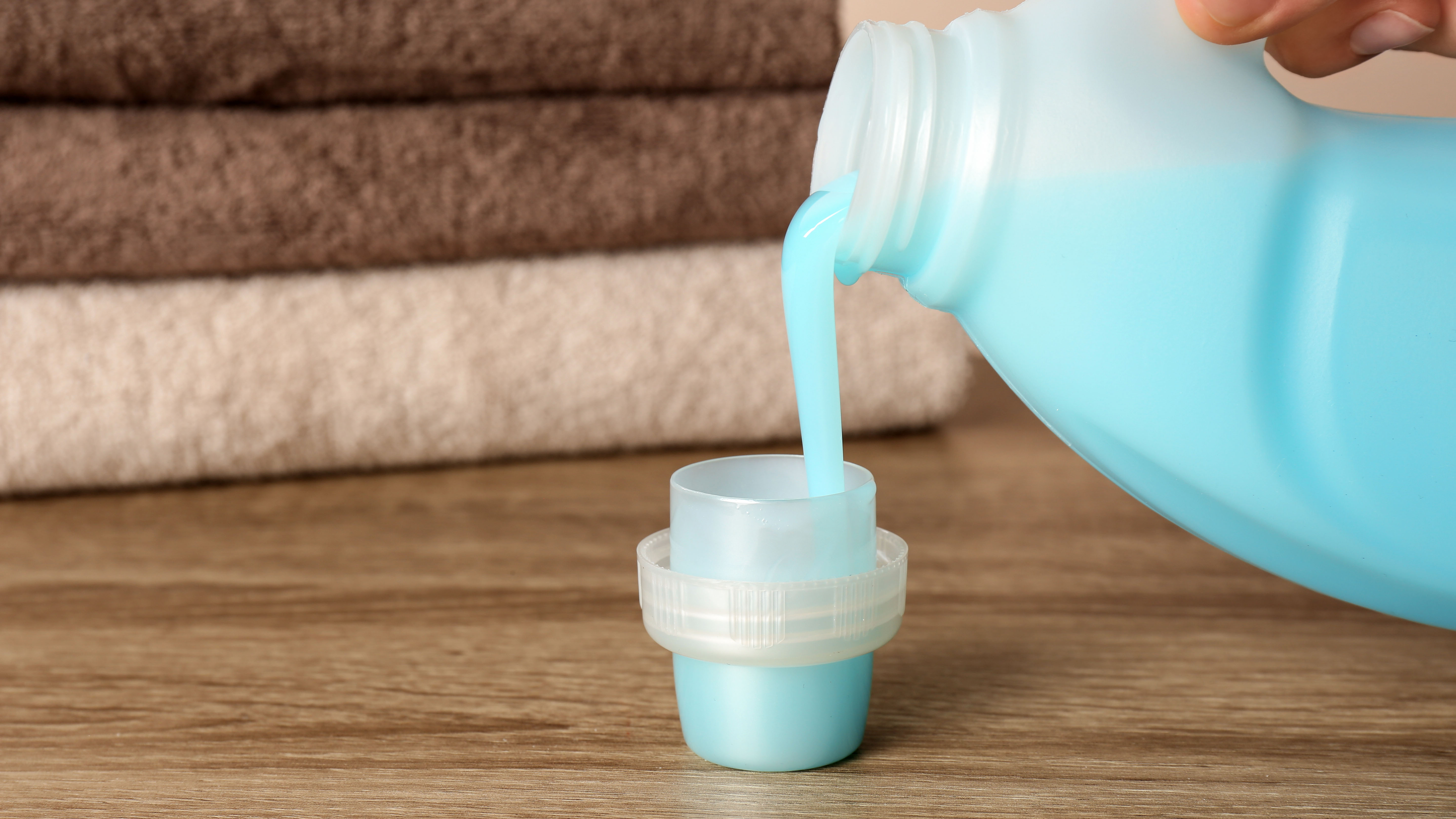
First of all, sportswear should never be subjected to fabric softener. Fabric softener ‘softens’ by coating the material in a layer of waxy residue. The trouble is that this creates an active barrier on the surface which reduces absorption. This makes it bad news for sportswear because it can no longer absorb sweat as effectively. Towels should steer clear of fabric softener for the same reason.
The impact of fabric softener doesn’t stop there either. This waxy barrier also prevents clothes from washing as effectively — fabric can’t absorb the detergent or be rinsed so thoroughly. And with every time you use fabric softener, this layer builds and builds, locking in odors. Considering this and the environmental impact, we recommend removing fabric softener from your laundry room altogether, or at least avoiding it when it comes to your sportswear. For more information on this, here’s why fabric softener is bad news for you and your washing machine.
2. Things can snag and wear
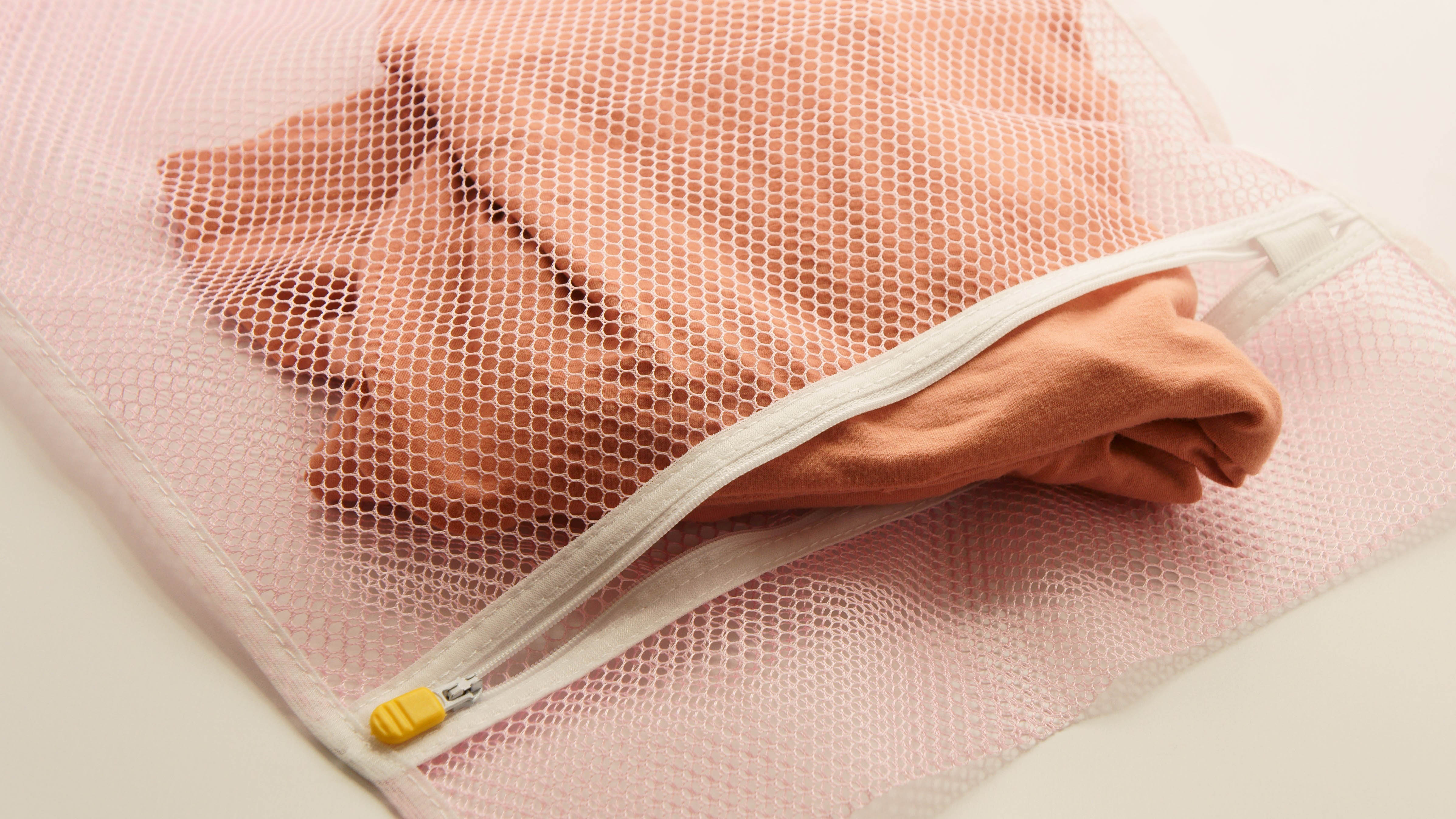
While your gym gear can take a lot of wear when it comes to your workouts, it’s more delicate than you’d think in the wash. The material is much softer and finer compared to everyday items and can easily snag. For instance, a loose zipper on a pair of jeans can catch and tear, while denim can wear at the material as the wash agitates. Ultimately, keeping your sportswear separate from these harder materials will help it last longer.
To help reduce such wear and tear for the most delicate of items, such as sports bras, you can always invest in a laundry bag. This keeps the item contained as it washes, and prevents any hooks from snagging. An example of this would be the GOGOODA 7Pcs Mesh Laundry Bags ($8.38, Amazon).
3. One setting doesn’t suit all
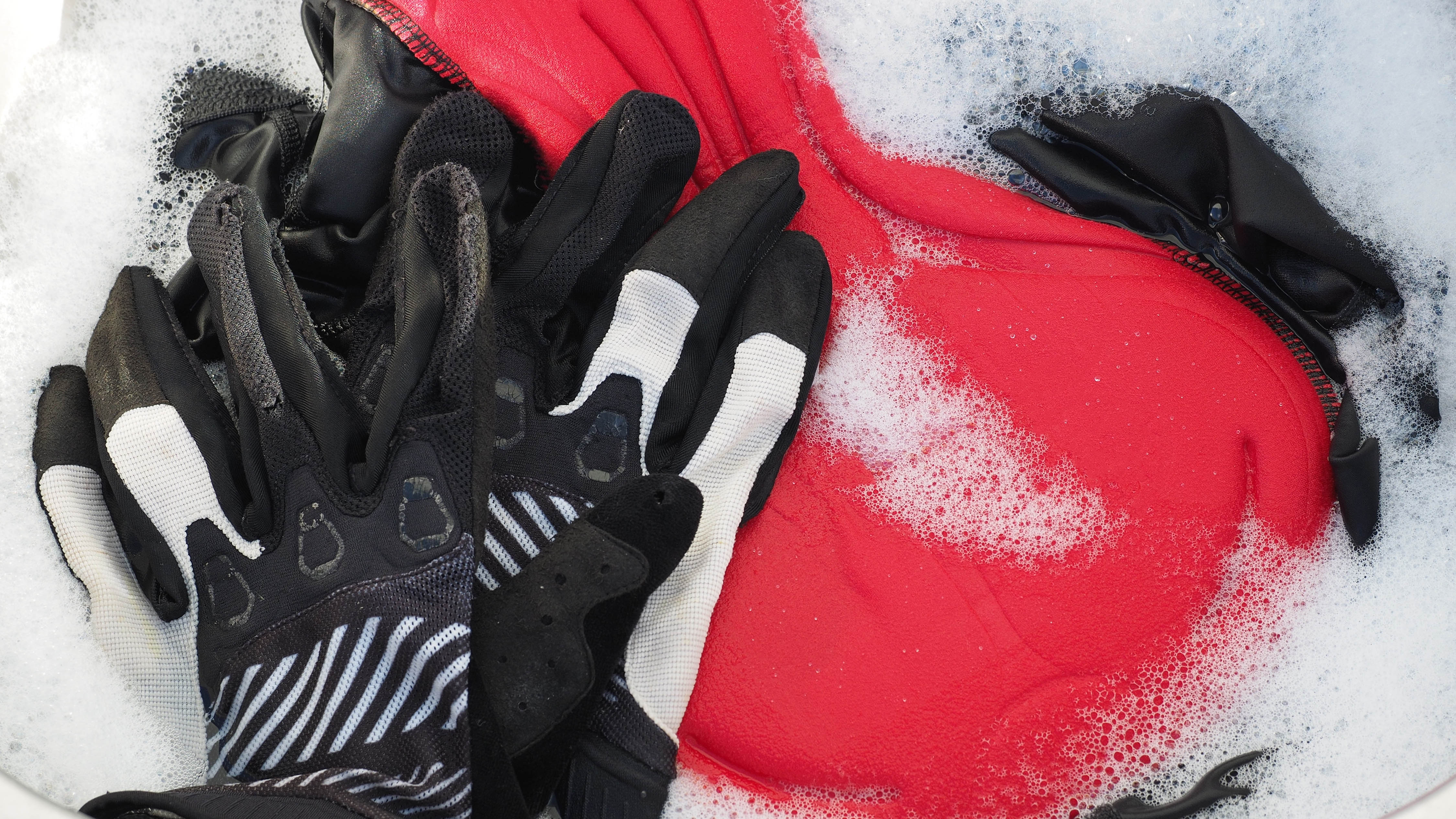
If your gym gear is being thrown into the load with the rest of your laundry, it’s likely being subjected to the same settings as everything else — most likely a hardy hot wash, designed to shift the most stubborn of stains. This is doing more damage to your sportswear than you know. A hotter temperature than allowed can shrink the material, while an aggressive wash cycle will wear the fabric.
Sign up to get the BEST of Tom's Guide direct to your inbox.
Get instant access to breaking news, the hottest reviews, great deals and helpful tips.
Always check the care label and make sure you’re following the instructions to prevent unnecessary damage. In most cases, a cold wash will be sufficient — a dedicated sportswear or delicates cycle might be best. Or if you have the time, hand wash the items. Never dry gym gear in one of the best clothes dryers, unless the care label specifies that it’s safe, otherwise the elastic will shrink — air dry instead.
4. A dedicated detergent is better
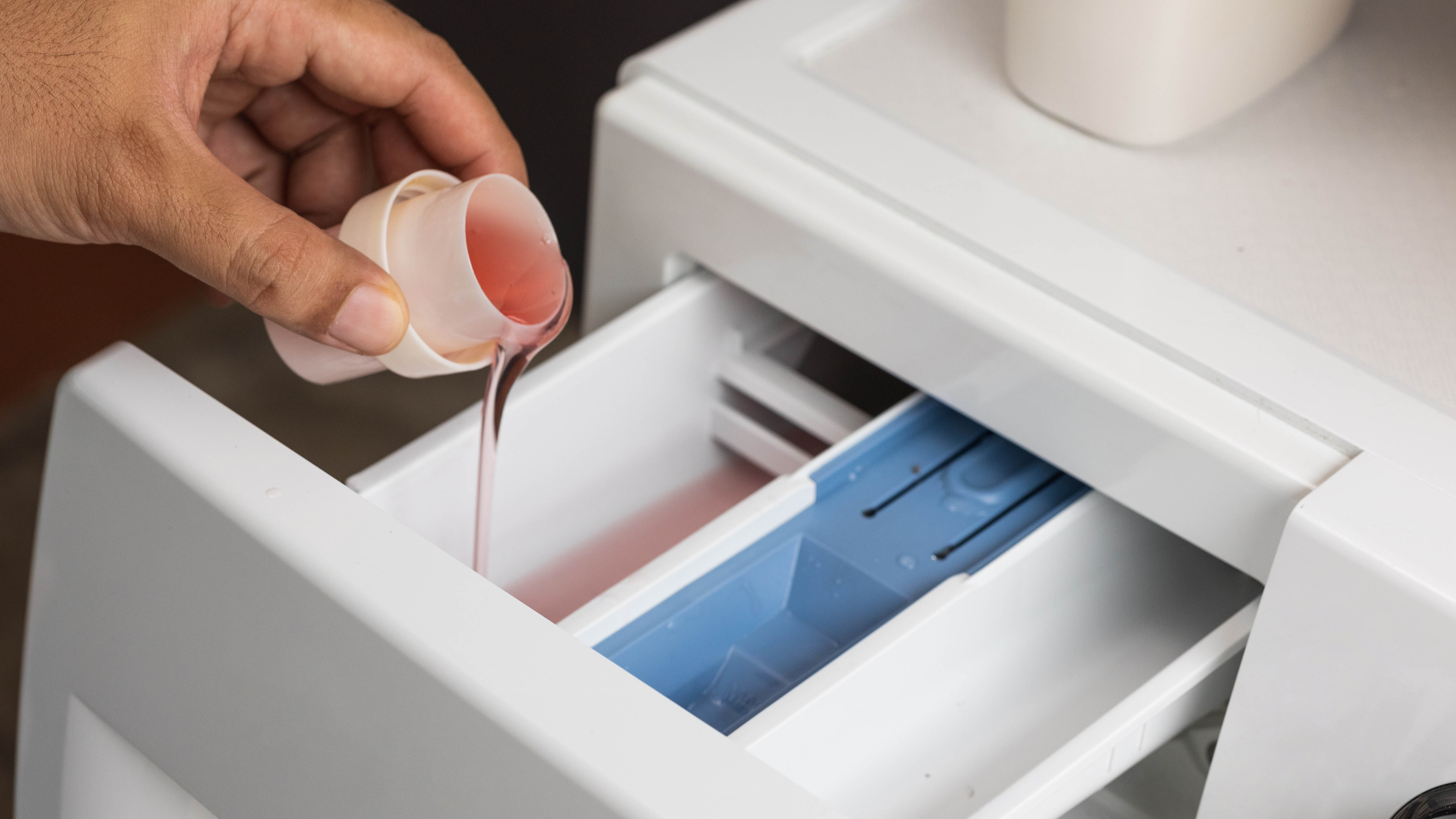
There’s all kinds of laundry detergents to choose from, and each will suit different circumstances. For instance, biological detergent tends to contain enzymes to aid with stain removal and whiten clothes, while non-biological detergent is better for sensitive skin. Then there’s different forms of detergent to consider, including powder, liquid and capsule. For more info here see, powder vs liquid detergent: which is best for your laundry?
On top of this, there’s a range of laundry detergents to suit the materials you’re washing, such as woolens and sportswear. An example of this would be Rockin' Green Active Wear Detergent ($28.99, Amazon). Detergents, such as these, will be designed to target the bacteria your gym clothes accumulate, while not being overly abrasive. They’re generally focused on odor removal, and will perform better on synthetic fibers, rather than natural ones. Don’t make the mistake of using one detergent for everything.
5. Hygiene and odors
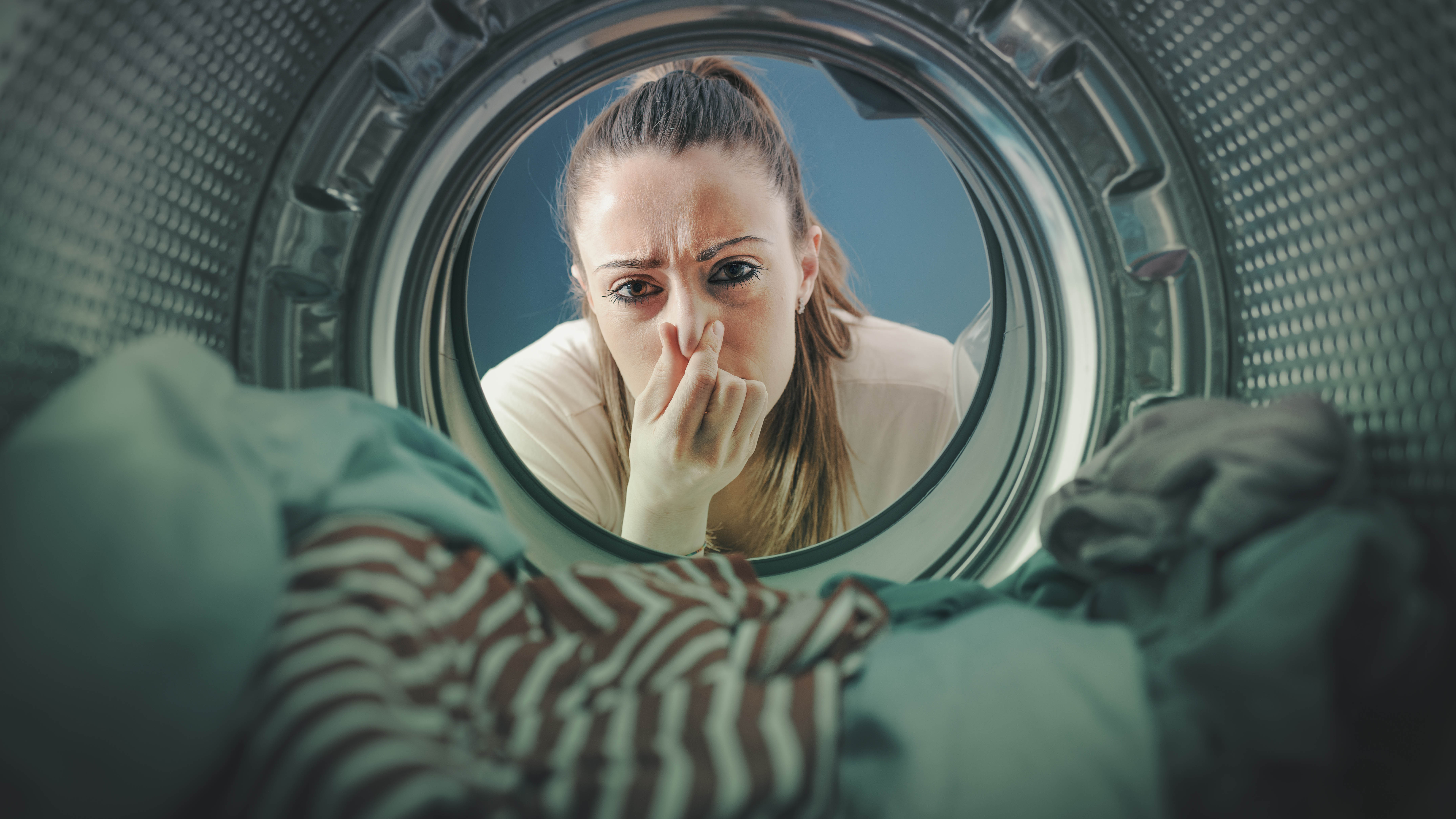
Finally, if your gym gear is covered in sweat and stinks, why would you want to wash it with everything else? You wouldn’t throw toilet mats or microfiber cloths into the same load — so why should sportswear be any different? You don’t want the smell or bacteria contaminating other items in the wash.
Add to that, if your gym gear smells that bad, you should really focus the wash on cleaning it above everything else. Soak any really smelly gym clothes for 30 minutes in a solution of cold water with a cup of distilled white vinegar and baking soda (be prepared for fizzing when you first combine these). Then throw the items straight into the washer once time is up — this will help deodorize. Remember, while mixing your gym gear with your regular load in the washing machine is a bad idea, you can wash multiple items of sportswear at the same time in one cycle.
Never mix bleach with vinegar — it creates a lethal chlorine gas.
If you want to reduce odors, it's also recommended that you air dry damp sportswear once you’re back from the gym, rather than leaving it bundled up in a laundry hamper. A warm and damp environment is the perfect breeding ground for bacteria, so items will only smell worse if left unattended like this.
More from Tom's Guide

Katie Mortram used to be a Homes Editor for Tom's Guide, where she oversaw everything from kitchen appliances to gardening tools, as well as smart home tech. Specializing in providing expert advice for cleaning and home manintenance, she now works as Household Advice Editor for Good Housekeeping.
